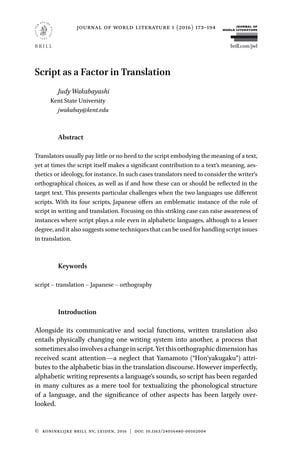Script as a Factor in Translation
January 2016
in “
Journal of world literature
”

TLDR The conclusion is that the type of writing system used can significantly affect the translation of a text.
The document from 2016 explores the significant yet often overlooked role of script in the translation process, emphasizing the challenges and creative demands it poses. It uses Japanese, with its four scripts, as a primary example to illustrate how script choices can alter the meaning, aesthetics, and ideological implications of a text. The paper discusses the semantic, rhetorical, and emotional effects of script, the creative potential of kanji, and the use of script in advertising and literature, including the translation of Murakami Haruki's "1Q84." It also examines the technical, cultural, and political dimensions of script, such as its role in religious texts, gendered associations like China's Nüshu script, and the political tensions between Hindi and Urdu. The document concludes that script is not just a neutral carrier of meaning but can be a powerful mediator in translation, requiring translators to employ a range of creative techniques to maintain the essence of the original text.